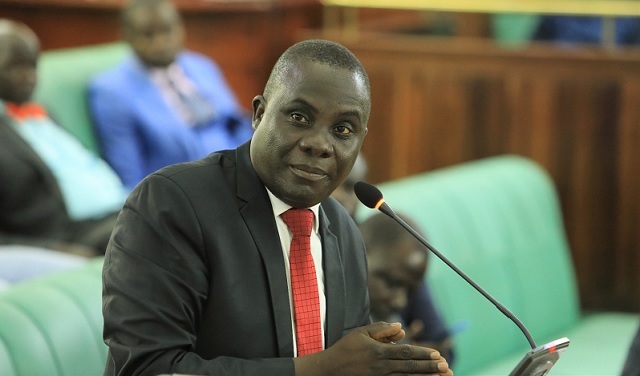
Kampala, Uganda | THE INDEPENDENT | The Foreign Exchange (Amendment) Bill, 2023 passed by Parliament will now require investors in the foreign exchange sector to have a minimum paid-up share capital of 200 million Shillings to transact the business.
While passing the Bill during plenary chaired by Speaker Anita Among on Thursday, Muhammad Muwanga Kivumbi, the Butambala County Member of Parliament, who doubles as the Shadow Minister for Finance, allayed fears that the proposed share capital amount could limit the participation of local investors in the foreign exchange trade.
Amos Kankunda, the Chairperson of Parliament’s Committee on Finance, Planning and Economic Development that processed the Bill observed that the 200 million Shillings minimum limit for money transfers from Uganda to other countries will curb money laundering.
Henry Musasizi, the State Minister for Finance in charge of General Duties reiterated that the minimum paid-up share capital in the foreign exchange business should cut across all investors because it would be difficult to differentiate local and foreign stockholders in the business.
The Foreign Exchange (Amendment) Bill will also increase the minimum paid-up share capital required to carry out a foreign exchange business from 20 million to 100 million Shillings.
According to MPs on the Committee of Finance, Planning and Economic Development, market development, the capital position of licenses, and ensuring sustainable business are some of the factors that necessitated the increase in the minimum paid-up capital.
The committee members observed that as of 30 June 2022, 153 licensees (65.67 percent) out of 232 licensees held capital and reserves above 100 million Shillings, whereas 40.77 percent of the licensees held paid-up capital of more than 100 million Shillings.
In its report, the committee noted that the data shows that foreign exchange business requires more capital than the current statutory requirement and that the current statutory capital requirement is not commensurate with the practical reality of foreign exchange business.
Further, the committee distinguished that the sustainability of a business is largely driven by how much paid-up capital or shareholder funds it holds to absorb losses that arise from foreign exchange volatility and operating costs.
The current Bill seeks to amend the Foreign Exchange Act, of 2004 to provide for the enactment of the minimum capital requirements to carry on foreign exchange business, the use of technology in operations, and the charging of administrative penalties.
It will also provide for the strengthening of the vetting requirements and the harmonization of the regulatory regime pertaining to foreign exchange bureaus and money remittance companies within the East African Community – EAC bloc.
*****
URN
 The Independent Uganda: You get the Truth we Pay the Price
The Independent Uganda: You get the Truth we Pay the Price



